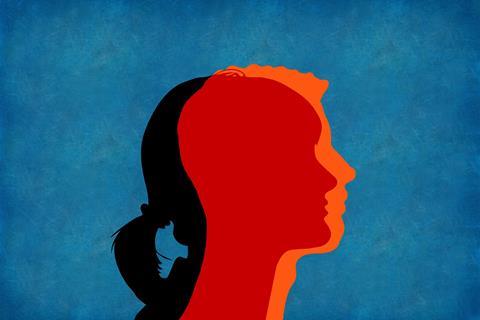A Nottingham-based law professor and reverend explains what happens when there’s a clash of rights between transgender people and Christians

After a 6 year-old boy in their son’s class came to school sometimes dressed as a girl, Nigel and Sally Rowe raised concerns with the Church of England primary school. When dialogue broke down, the Rowes removed their children from the school amd are now taking legal action in relation to the current transgender guidelines issued to Cornish schools, arguing that they are inappropriate.
Naturally, this media attention has raised concerns for many other Christian parents, and indeed young people of school age, who are left wondering what the situation will be in their own area, and whether their values will be respected. Many Christian parents are unsure how to respond when their children have questions about transgender pupils or ideology they’ve encountered in their school.
What the law says
Firstly, it is important to bear in mind that the European Convention on Human Rights, as brought into UK law by the Human Rights Act 1998, guarantees freedom of religion and belief to all people, regardless of their age or other characteristics. It also protects the right to private and family life, and specifically recognises the right for children to be educated in conformity with the religious and philosophical beliefs of their parents. Modern human rights law holds parent/child relationships in extremely high regard, and acknowledges the significance of culture and beliefs being transmitted down the generations.
However, it is undeniable that none of the rights described above are absolute. Exercise of these rights can be restricted where there is a good reason for this, provided that any limitation is proportionate to the situation. It is also the case that human rights are sometimes in conflict, and in these circumstances a degree of limitation is often inevitable. Protecting the human rights of one group is only possible by drawing boundaries around the liberty of another. For example, the law restricts freedom of expression by treating some forms of hate speech as a criminal offence.
Parents and children have a right to believe that gender and biological sex are unchangeable, but may need to limit expressions of this which cause hurt or offence
Both human rights law and equality law recognise the need not only to protect transgender people from harassment and discrimination, but also to allow them to live their lives in accordance with their gender identity. This of course creates scope for conflict with some Christian perspectives, and leaves us with questions about how this might be resolved. If two sets of interests are on course for a head on collision, which will be given priority?
The short answer is that there is no hierarchy of rights, and neither religious freedom nor the rights of transgender people will automatically give way. The appropriate outcome will always depend upon the balance of interests in a particular situation.
Learning to coexist
When it comes down to a real world conflict, it is important to ask what is at stake for both sides. In a situation like the original controversy with the Rowe family, where a child was simply being asked to attend school alongside a transgender pupil, it is difficult to see a serious detriment. There was no suggestion from the school that the Rowe’s son would be punished for being curious or confused, and asking age-appropriate questions about the situation.
Hypothetically, if a child were instructed or encouraged by their parents to refuse to accept a transgender classmate, and consistently treated them as having a gender identity which matched their biological sex, then this could lead to problems. This kind of behaviour might well cause distress to the other pupil, violate the school’s equality policy and also amount to bullying.
Learning to coexist with people who hold a different worldview is a life-skill that everyone should start acquiring as a child.
Obviously, this presents challenges for parents who believe that gender is immutable and matches God-given biological sex. There are likely to be some difficult conversations, and the child will need help to navigate the dissonance between the religious doctrine of their home, and the social requirements of school. However, similar dilemmas arise in many other contexts. For example, parents who believe that homosexuality is a sin may face questions about where a school friend with gay parents has two daddies, and a child from a vegan household may struggle with the knowledge that their classmates eat animals. Learning to coexist peacefully and respectfully with people who hold a different worldview is a life-skill that everyone needs to start acquiring as early as possible.
Parents and children alike have a right to believe that gender and biological sex are inextricably linked and unchangeable, but may need to limit expressions of this which cause hurt or offence. The bottom line is that this is no different from many other circumstances where the views of the home clash with mainstream culture, and interests have to be balanced.






























